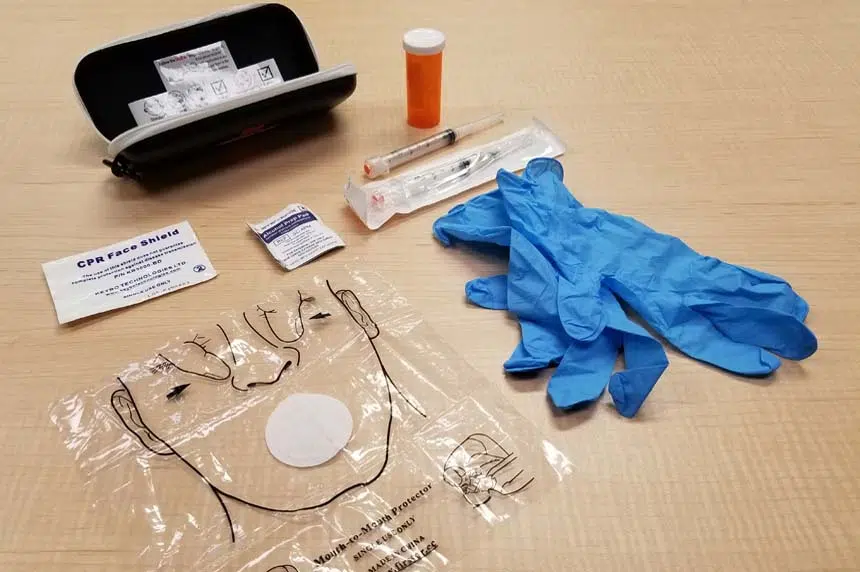Overdoses aren’t just skyrocketing across Saskatoon, the severity of the calls are also getting increasingly worse.
That’s according to Medavie Health Services West, which says it has responded to 636 calls in the past week alone. Of those calls, 52 were “critical transports,” and 71 were linked to overdoses.
Troy Davies, the service’s director of public affairs, told 650 CKOM Tuesday that those numbers are concerning. He explained that they saw a large uptick following the COVID-19 pandemic.
“Our overdose numbers were about 30 to 40, sometimes 45 (per week), that was our normal (pre-pandemic). Basically since March, when everything kind of shut down, our numbers have basically doubled, almost tripled,” Davies said.
In September 2019, Medavie began releasing its weekly numbers to its social media to show the community what its been dealing with.
The concerns continue to grow, according to Davies.
“Our concern is that they’re not just the minor overdoses that someone might be intoxicated or may have been using some drugs where they need some help. It’s to the point where we’re giving Narcan excessively, almost daily,” he said.
On the other hand, with its work with the Saskatchewan Health Authority through the pandemic, Davies says stretcher wait times and offload delays for those in distress have been wiped, and they haven’t had a call delayed through the pandemic.
Davies says as Saskatoon continues to grow though, so does the issue.
“We’re going to see major city problems. We (saw) this coming down the pipe coming from Vancouver to Calgary, to Edmonton. Now to Saskatoon. We’re just going to see these numbers rise,” he said.
Davies pointed to a return in normalcy as the way this problem could potentially be solved. With the loss of things to do, along with the emergence of the Canada Emergency Response Benefit program, the problem continues to grow. However, he did have a more general explanation of why the calls continue to come in.
“I would say its more of a mental health (issue),” Davies said.
“It’s not just fentanyl and overdose calls that we’re going to. These also include alcoholism, marijuana, whatever it might be across the board.”
Davies said this will not be a short term fix for the problem, but they are more than willing to work with those in the community to start building solutions to bring to Saskatoon.
“We’re more than willing to support and show our data, and to share our stories of what we’re seeing.”











